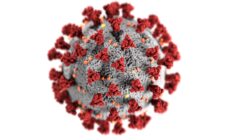What is Hypertension
Hypertension commonly called as high blood pressure is the state of increase in the pressure of blood flow in the arteries.
Blood pressure (BP) is the force exerted by blood against the wall of blood vessels during heart muscle contraction. The increase in pressure put lot of overload on the heart pumping action which thicken and stretches the heart muscles to enlarge. The enlarged heart cannot pump enough blood.
The normal blood pressure range is
(120 – 80) mm of hg.
120mm of hg is the
systolic pressure and 80mm of hg is the
diastolic pressure.
When the blood pressure range goes beyond (140 – 90) mm of hg, it is said to be
hypertension.
What are the types of hypertension:
The two main types are 1) primary or essential hypertension (unknown causes) and 2) secondary hypertension (direct cause).
The least common types are malignant hypertension, isolated systolic hypertension, resistant hypertension and white coat hypertension.
What are the causes and risk factors of hypertension:
Ageing – high blood pressure is commonly seen in the men very early than in women. Women have more chances only after menopause.
Water and salt imbalance in the body – fluid retention is favored which definitely raises the blood pressure.
Imbalance in the hormonal production
Excess weight – more your weight more the oxygen needed by the body. So heart works more to compensate it by pumping more blood in the vessels creating a high pressure.
Over stress – it will have sudden raise in the blood pressure temporarily and trying to relax in bad manner or habit will further worsen the blood pressure to increase.
Food habits (too much salt in diet) – too much salt in diet will lead to fluid retention in the body.
Smoking – temporary raise in blood pressure occurs. Second handed smoking can be overwhelming to the blood pressure.
Alcoholism – over consuming alcohol at a time will induce certain hormones responsible for the increase in blood pressure.
Atherosclerosis – this is the condition of blood vessel with hardenings and plaque formation in vessel walls leading to blockage in blood flow, automatically increasing the blood pressure.
Chronic kidney disorders
Diabetes – mostly type 2 diabetes have an adverse effect on the blood pressure increase.
Renal artery STENOSIS
Autoimmune disorder (PERARTERITIS NODOSA)
Drug induced
COARCTATION of aorta – structural deformity of aorta seen right from birth.
Genetic transmission – some have the family history running through the genes.
In some race (African American) – hypertension is seen mostly in the blacks than in the whites.
Disorders of endocrine gland.
Adrenal gland tumor – the preexisting tumor can change the pressure in the blood vessels to increase.
Deficiency of calcium, potassium, magnesium – these fails to keep the sodium in balance in the cells leading to fluid retention and raising the blood pressure
Deficiency of vitamin D – affects the kidney`s enzyme production which has adverse effect on the blood pressure.
Use of oral contraceptives – some women continues the use of oral contraceptives which have adverse effect of increase in blood pressure.
What are the signs and symptoms of hypertension:
Around 35% of people doesn`t know they have hypertension. Some symptoms may not be seen even the condition had gone severe. The most common symptoms are
Severe headache – due to sudden increased pressure in the arteries supplying the brain.
Mental stress (confusion)
Fatigue (tired)
Excess sweating
Buzzing sound in ears
Reduced vision capabilities – pressure increased in the blood vessels supplying the eyes.
Nervousness
Lightheadedness
Palpitation – irregularity or abnormality in the rhythm of the heart beat.
Shallow breathing – inability to breathe air to the full lung capacity and short form of breathing continues.
Nausea (sickness of stomach)
Mild chest pain
Bleeding nose
Blood in urine
How to detect hypertension :
The blood pressure is measured by
sphygmomanometer. It shows the ranges of systolic and diastolic pressures to diagnose the hypertension.
The signs of organs like heart, kidney and eyes show the hypertensive condition prevailing.
Tests done to diagnose hypertension are
- Blood test – blood test reveals the content in the blood changing according to the pressure in the blood vessels.
- Electro cardiogram – shows the thickening of the heart muscle and electrical conduction of heart according to the pressure increase in the blood vessels. An abnormal ECG is seen in hypertensive conditions.
- Echo cardiogram – show the enlargement and damaged condition of the heart.
- Pulmonary function test – lungs are carefully tested to check for the gaseous exchange and detect whether there is any pulmonary hypertension.
- Pulse OXIMETRY- this shows the oxygen content in the blood. High blood pressure will always have less oxygen content in blood.
- Urine analysis – check for the levels of excreted waste products. Any abnormality seen will be due to high blood pressure.
What are the complications of hypertension :
Hypertension is the major concern for our body as it affects every other organ. It can lead to severe illness or complication in our body functions. Most possible complications are
- hypertensive heart diseases
- disorder of body`s metabolism
- aneurysm (bulging of blood vessels)
How to prevent hypertension:
HYPERTENSION in today`s world is increasing in enormous amount. Running in today’s world is damaging the heart in several ways.
- Eating heart healthy foods will definitely lower the blood pressure.
- Reduce the intake of salt in diet to minimal level
- Exercising every day, morning walk is most beneficial in reducing the blood pressure
- Over weight is the main reason for high blood pressure, so engage in more physical activity to reduce weight and lower the blood pressure.
- Completely give up smoking and alcohol habits.
Medications for hypertension:
- Diuretics – increases the urine excretion to expel more fluid out and sodium content out.
- Beta blockers – work load on heart is reduced.
- ACE inhibitors – vessels dilated for free flow of blood.
- Calcium channel blockers – clears calcium depositions in blood to make blood flow free for heart.
- Vasodilators – dilates the vessels.
- ARBs – clears the chemicals for free flow of blood.
- ALDOSTERONE receptor blockers – blocks the production of ALDOSTERONE that narrow the blood vessels.
The doctors prescribe drugs according to the patient’s present status. Some patient has very high range of blood pressure and some may have mild ranges. Doctors also take care of other heart and kidney conditions.
Some drugs have side effects and should be discontinued and alternate drugs used under doctor’s supervision.
Conclusion:
Hypertension is the most common type of disease seen in today`s world. Hypertension may also be the sign of various other conditions of body. It should be monitored frequently and kept under control. Though the awareness programs are increasing day by day, hypertension occurrence rate has not reduced worldwide.
Majority of death due to hypertension are by heart attacks and not by stroke. Hypertension is controlled by regular medication and regular exercise programs and healthy diet plan.





